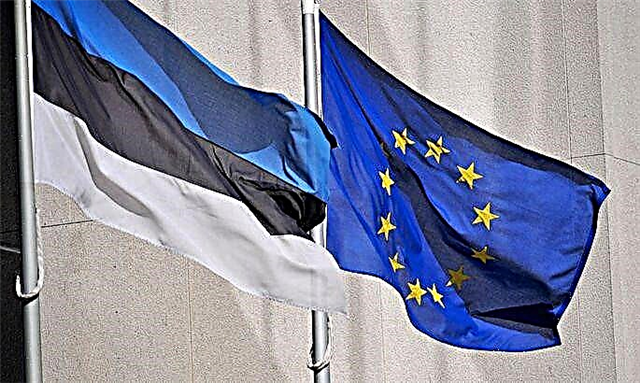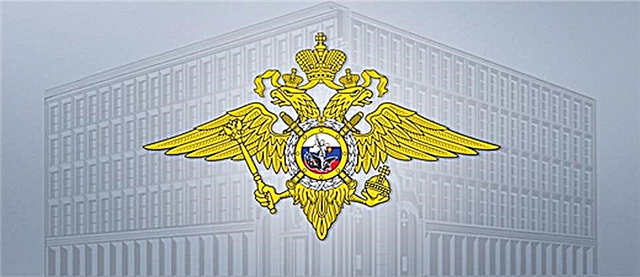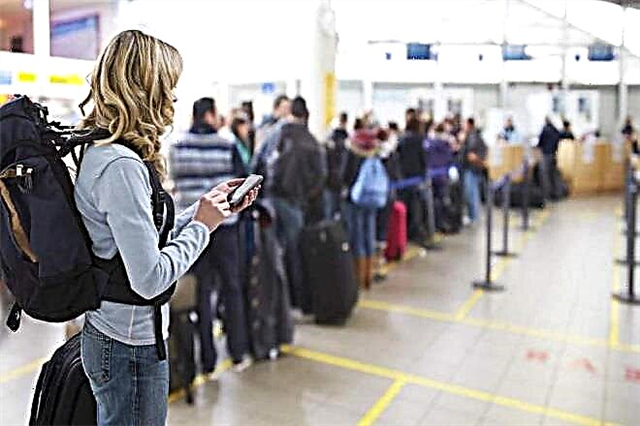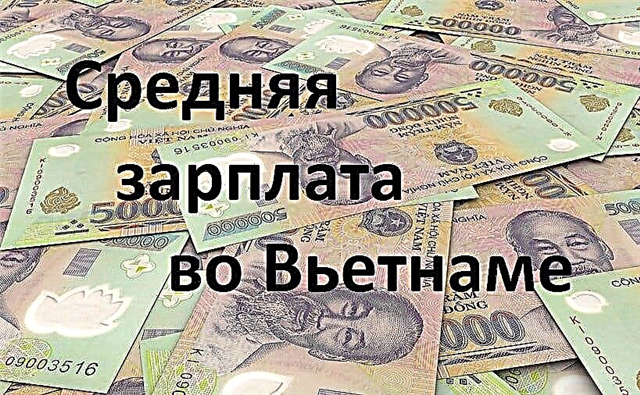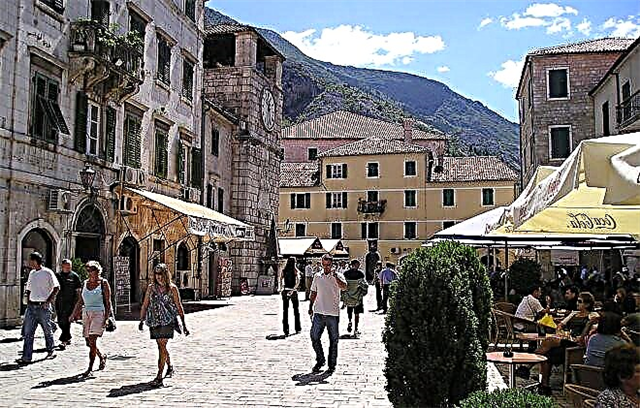Located on the Adriatic coast, Montenegro, although it is a poor European outskirts, is nevertheless considered a fairly calm country, suitable for leading a measured life. Therefore, it attracts not only those who want to spend a vacation by the sea, but also those who are in search of a more favorable place for permanent residence. If you are thinking of moving to this state, first of all, familiarize yourself with how life is arranged in Montenegro today.

The standard of living of modern Montenegrins
Tourism is the main source of financial revenues for the country's economy. Every year the profit received from it increases. Since 2021, the state has received the official status of a candidate for accession to the European Union (EU).
To speed up the moment of final integration, the local government is trying to bring the standard of living in Montenegro closer to that of Europe. But it still lags significantly behind European standards and indicators.
Nevertheless, the country's economy shows stable growth every year. At the same time, the quality of life of local citizens is gradually improving.
Job opportunities and wages in the country
Migrants, including those from the CIS countries, have the opportunity to find work in the service sector. At the height of the holiday season, there are a large number of vacancies for maids, waiters, bartenders, cooks, drivers, masseurs, animators, car washers and yachts.
There is work in Montenegro for builders and installers.
There is a shortage of qualified specialists: engineers, doctors, managers, accountants. But it is difficult for newcomers to get such positions.
The minimum wage for citizens of the state is about 160 euros per month. The average salary in Montenegro in 2021 is 400-500 euros. Service workers at the peak of the holiday season, along with tips, can earn 1-1.5 thousand euros.
The tax burden on citizens in Montenegro is less than in the EU. Income tax is charged on a progressive scale:
- everyone with a salary of up to 720 euros pays 9% to the treasury;
- those who receive more than 720 euros are charged 15%.
The tax rate on real estate depends on the age of the object in operation: when it comes to the used property, the rate is 2%, for a new building - 17%. Depending on the location and technical condition of the house or apartment, 1 square meter will cost about 1–2.5 euros, and an entire medium-sized dwelling - 100–120 euros per year.
There is also a tourist tax - 1 euro per day. Children under 12 years old, disabled people, property owners are exempted from paying it. Young people 12-18 years old pay 50%.
Medical services
 There are public and private hospitals in the country's health care system. As evidenced by the reviews of many patients, in the former, there is a shortage of modern equipment and qualified doctors. Secondly, quality medical services are provided.
There are public and private hospitals in the country's health care system. As evidenced by the reviews of many patients, in the former, there is a shortage of modern equipment and qualified doctors. Secondly, quality medical services are provided.
Many of the private clinics are branches of renowned European medical institutions. Treatment for Montenegrins in public hospitals is free, and in private - only paid.
In order for a foreigner to be able to use free medical services in public clinics, it is necessary to live in Montenegro on the basis of a residence permit. With a residence permit, you can also purchase medicines at pharmacies at a discount, and even get some medicines for free.
Education system
The state provides for preschool, school and higher education:
- Kindergartens are open for kids from 3 years old, but their attendance is optional.
- School education is divided into primary and secondary education. In primary school, education lasts 9 years, in secondary - 3-4 years. Children have the opportunity to receive school education free of charge. At the same time, primary school is considered compulsory for everyone, and you can go to secondary school at will.
- It is also not necessary to get a higher education in the country. Both private and state universities operate here, for admission to which foreigners need to know the Montenegrin language.
Applicants can take language courses at universities. Upon completion, certificates are issued indicating the level of knowledge of the state language of Montenegro.
Those planning permanent residence in Montenegro should take into account that most universities are focused on the tourism sector and humanitarian specialties. Therefore, many Montenegrins wishing to become specialists in the field of natural science, exact sciences, IT technologies, go to Europe.
Crime level
Montenegro belongs to the list of poor countries, so the problem of crime for it does not lose its relevance. The most widespread of these is the drug trade.
Since the state gained independence, the police have been reformed, whose efforts are aimed at combating organized crime. Therefore, every year there are fewer mafia groups in the country.
The situation in Montenegro is complicated by the existence of groups of smugglers involved in the illegal transportation of refugees from Albania, the Middle East and North African countries, who have been denied asylum.
Due to the excessive influx of illegal immigrants, the Montenegrin government is considering the idea of building a barbed wire fence, first of all, on the border with Albania.
One of the acute problems of Montenegro is the high level of corruption. According to the data of the Center for Democracy and Human Rights for 2021, about 67% of the country's population are faced with corrupt practices of government officials, employees of medical and state institutions.
Climate features
Montenegro occupies the western part of the Balkan Peninsula. In the southwest, it is washed by the waters of the Adriatic Sea. Plain relief prevails in the center of the country, and mountainous in the east.
The climate on the sea coast is Mediterranean. Summers are dry and hot. The average summer air temperature ranges from +23 to +25 ° С. Winter is warm, the thermometer drops to a maximum of +3 ° C. The beach season lasts from May to the end of October.
In the mountainous and other regions, the continental type of climate prevails. Summer weather in this part of the country is moderately warm. The air warms up to +19 to +23 ° С. Winters are cold and snowy.
Average winter temperatures range from +5 to -10 ° С. The snow cover persists for 5 months.
The answer to the question of whether it is worth going to Montenegro in winter is positive: in December – March in the mountainous regions, the skiing season is in full swing.
Is it expensive to live in Montenegro
According to the reviews of those who permanently reside in Montenegro, a family of three needs at least 1,000 euros to live for a month. This amount includes food and other essential goods, as well as housing costs.
How much is housing and utilities
 Prices for apartments in Montenegro vary depending on the region. For example, you can rent a one-room apartment in the capital of the state - Podgorica - for an average of 300 euros per month. In the resort town of Budva, renting a similar apartment will cost more - about 350 euros per month. For comparison: a three-room apartment in Podgorica costs about 500 euros, and in Budva - up to 600 euros per month.
Prices for apartments in Montenegro vary depending on the region. For example, you can rent a one-room apartment in the capital of the state - Podgorica - for an average of 300 euros per month. In the resort town of Budva, renting a similar apartment will cost more - about 350 euros per month. For comparison: a three-room apartment in Podgorica costs about 500 euros, and in Budva - up to 600 euros per month.
Monthly costs for utilities and maintenance of an apartment with an area of 85 m2 are distributed as follows:
- electricity - from 30 to 100 euros;
- water supply - from 20 to 50 euros;
- 1 cylinder of gas (mostly non-gasified at home in the country) - about 60 euros (it is enough for a maximum of 4 months);
- garbage collection - from 5 to 12 euros;
- cleaning and security of housing - from 1 to 2 euros;
- TV - from 10 to 20 euros;
- Internet - about 25 euros at a speed of 5 Mbps and 45 euros - at a speed of 7 Mbps.
Those who want to buy an apartment in Podgorica will have to pay about 1-1.6 thousand euros for 1 m2 in the central area and up to 1 thousand euros - far from the center. In Budva, prices are higher: about 3.2 thousand euros per 1 m2 in the center and up to 1.8 thousand euros - in an area remote from the center.
Food prices
The cost of living in Montenegro, as in any other country, is not least determined by food prices. As practice shows, the products here are much cheaper than in the EU countries. Average prices for basic goods are shown in the table:
| Product name | Quantity / volume / weight | Cost, EUR |
|---|---|---|
| Chicken eggs | 10 pieces | 1,4-1,5 |
| Rice | 1 kg | 1-1,5 |
| Tea | 100 g | 1,5 |
| Juice | 1 l | 1 |
| Cabbage | 1 kg | 1-2 |
| Cucumbers | 1 kg | 1-2 |
| Carrot | 1 kg | 1-2 |
| Strawberry | 1 kg | 2,5 |
| Oranges | 1 kg | 1,1 |
| Lemons | 1 kg | 1,3 |
| Apples | 1 kg | 1 |
| Chicken fillet | 1 kg | 3-4 |
| Beef tenderloin | 1 kg | 6 |
Meals in catering establishments for two people will cost from 20 to 40 euros per day on average. The exact amount depends primarily on the class of the cafe or restaurant. But most Montenegrins prefer cooking at home, because it is much more economical.
Fare
The country has a well-developed bus service. One-way fares within the city are on average 0.9 euros. The tariff for intercity transportation is from 2 euros for 1 hour of travel. By taxi, you will have to spend from 3 to 5 euros for a trip over a distance of 8 km.
The cost of renting a car directly depends on the season. The average price for renting a small car is from 9 euros per hour. From May to September, prices are twice or three times higher - up to 30 euros per hour.
Fuel prices are approximately the same in all regions of Montenegro. So, 1 liter of gasoline costs an average of 1.25 euros, diesel fuel - 1.08 euros.
The state has two airports - in Podgorica and Tivat. The first one organizes regular passenger flights, the second one - charter flights.
The situation with rail transport is difficult: it is poorly developed due to the mountainous terrain.
Features of the mentality and attitude of Montenegrins towards foreigners
One of the key features of Montenegrins is their slow pace. The fact is that the country has a little more than 620 thousand inhabitants. They do not encounter traffic jams and crowds, so they never rush. They tend to arrive at meetings with delays, and a foreigner should be prepared for this.
The attitude towards Russians, like other migrants, is generally friendly and benevolent among Montenegrins. In principle, it depends on the behavior of the foreigner himself. If he comes to the country for permanent residence and observes the laws in force, respects the local culture and traditions, studies the Montenegrin language, he will not have any problems in relations with the population. If the migrant resists assimilation into a new society for him, the attitude towards him will be, accordingly, negative.
Russian diaspora in Montenegro
 The number of migrants from Russia living in Montenegro does not exceed 1%. Most of them are businessmen and investors investing in real estate in the resort regions.
The number of migrants from Russia living in Montenegro does not exceed 1%. Most of them are businessmen and investors investing in real estate in the resort regions.
A separate group is made up of women who come to the country to marry Montenegrins and obtain citizenship. In search of work, a meager number of immigrants from the Russian Federation travels here, primarily due to low wages.
The question of whether Russians in Montenegro can be called a full-fledged diaspora is debatable. They show no desire for unity and community building.
Most Russians on the territory of the country prefer solitude to communication with compatriots. And some citizens of the Russian Federation receive a residence permit in Montenegro only in order to be able to stay on its territory especially during the holiday season.
About how Russians live in Montenegro, we can say that in general their life is calm and unhurried, like that of the local population. The main guarantee of a feeling of comfort is the benevolent attitude of the Montenegrins.
The best places to stay in Montenegro
It all depends on the purpose of the move. For those Russian migrants who have favorable climatic conditions in the first place, resort settlements will be the best choice.
One of the options where it is better to live permanently in Montenegro is the city of Bar, located in a flat area. Due to this location, the settlement has a developed road transport network. It also has good private hospitals with highly qualified staff.
The capital of the state - Podgorica - offers the widest selection of various goods and services. Nevertheless, it is not suitable for those who aspire to life in the metropolis. Most of the city is private housing construction.
Those wishing to find a job in the service sector, especially at the height of the tourist season, should settle in Budva. It is here that a large number of catering establishments, nightclubs, hotels, beaches, where many citizens of the Russian Federation rest and work.
Outcomes
The advantages of Montenegro are its high recreational potential, rather low prices for goods and services, the benevolent attitude of the population towards foreigners, including those from Russia. Among the shortcomings should be highlighted high unemployment, low wages, corruption, poorly developed transport system. Before deciding to move, it is important for every potential migrant to evaluate all the pros and cons of life in Montenegro in order to understand whether it will be comfortable for him.

